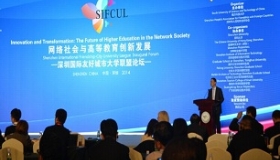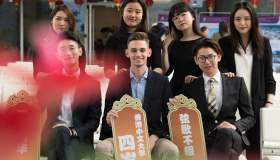Master Gregory C. Chow’s economic growth
Economic growth is a very important topic in macroeconomics, and it is also a topic which gains much attention in today's world. Because of the reform and opening up policy, China's economy has developed rapidly. What is the driving force behind this rapid growth? What are the factors that contribute to economic growth? These issues were analyzed and answered in Prof. Chow’s class.
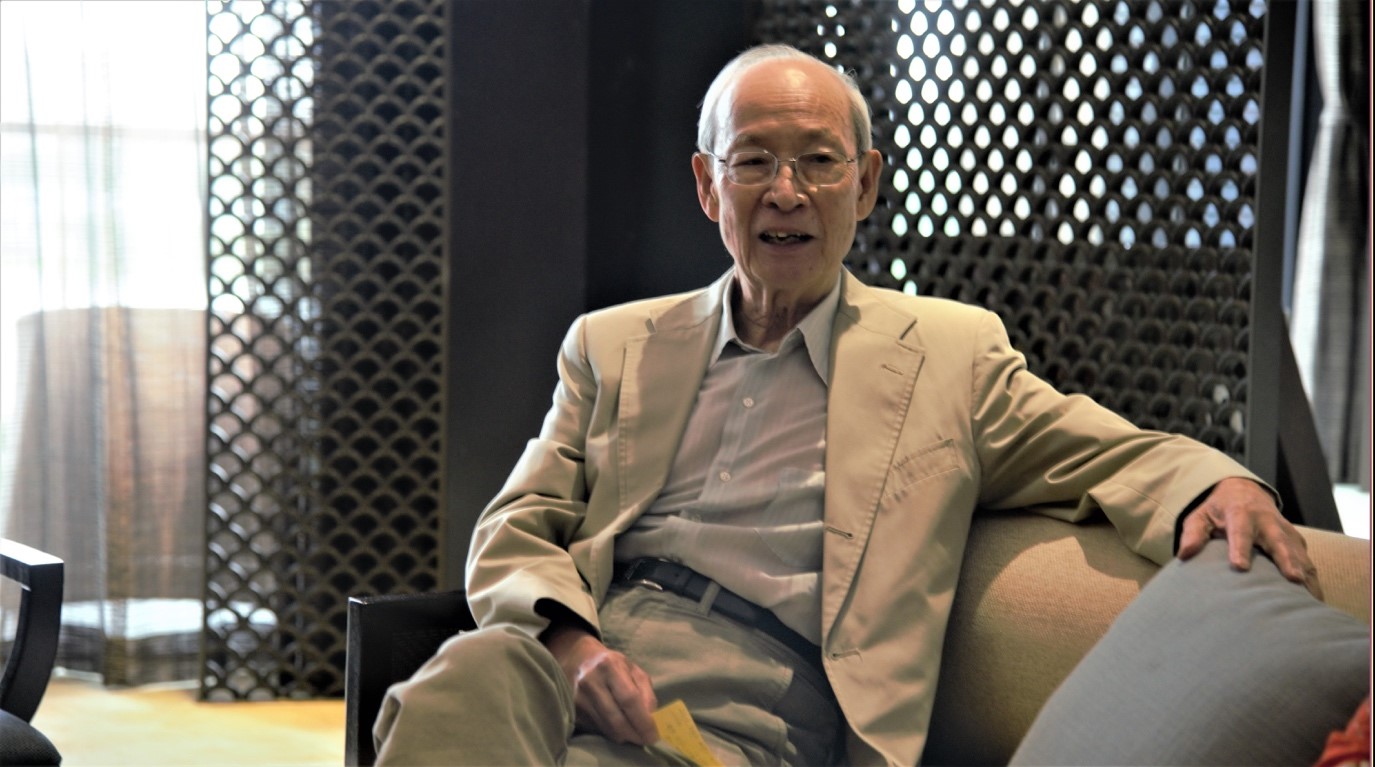
Introduction
Professor Gregory C. Chow is the Professor of Economics at Princeton University, he received Ph.D. degree from the University of Chicago. He has taught at MIT, Cornell, Harvard, Columbia and other well-known universities, and has been the Director of Economic Research at IBM Watson Research Center. He started working as the director of the econometric research project at Princeton University in 1970. Later on, this project was named "Gregory C. Chow Metrology Economic Research Project" in 2001. He is the academician of American Society of Honorary Philosophy and Taiwan "Central Research Institute", the honorary member of world number of economic society and American Statistical Society, and enjoys the membership of American Economic Association. He wrote 24 books and over 200 academic papers covering different topics such as econometrics, dynamic economics and applied economics. He invented the well-known "Chow test" applied for econometrics. He held honorary doctorate from Sun Yat-sen University, Hong Kong Lingnan University and Hong Kong University of Science and Technology. He was a consultant to the premier of the State Council, and a consultant to the National Economic System Reform Committee of the People's Republic of China. He was also the economic adviser of government officials of Taiwan. In cooperation with the National Education Board of China from 1985 to 1996, he opened up economic training courses in Renmin University of China and Fudan University, and recommended outstanding graduate students to pursuit Ph.D degree in well-known universities in the United States and Canada. He is now the columnist of "China First Financial Daily", "Southern Metropolis Daily", "The Financial Times", "Hong Kong South China Morning Post" and "Taiwan Business Times".
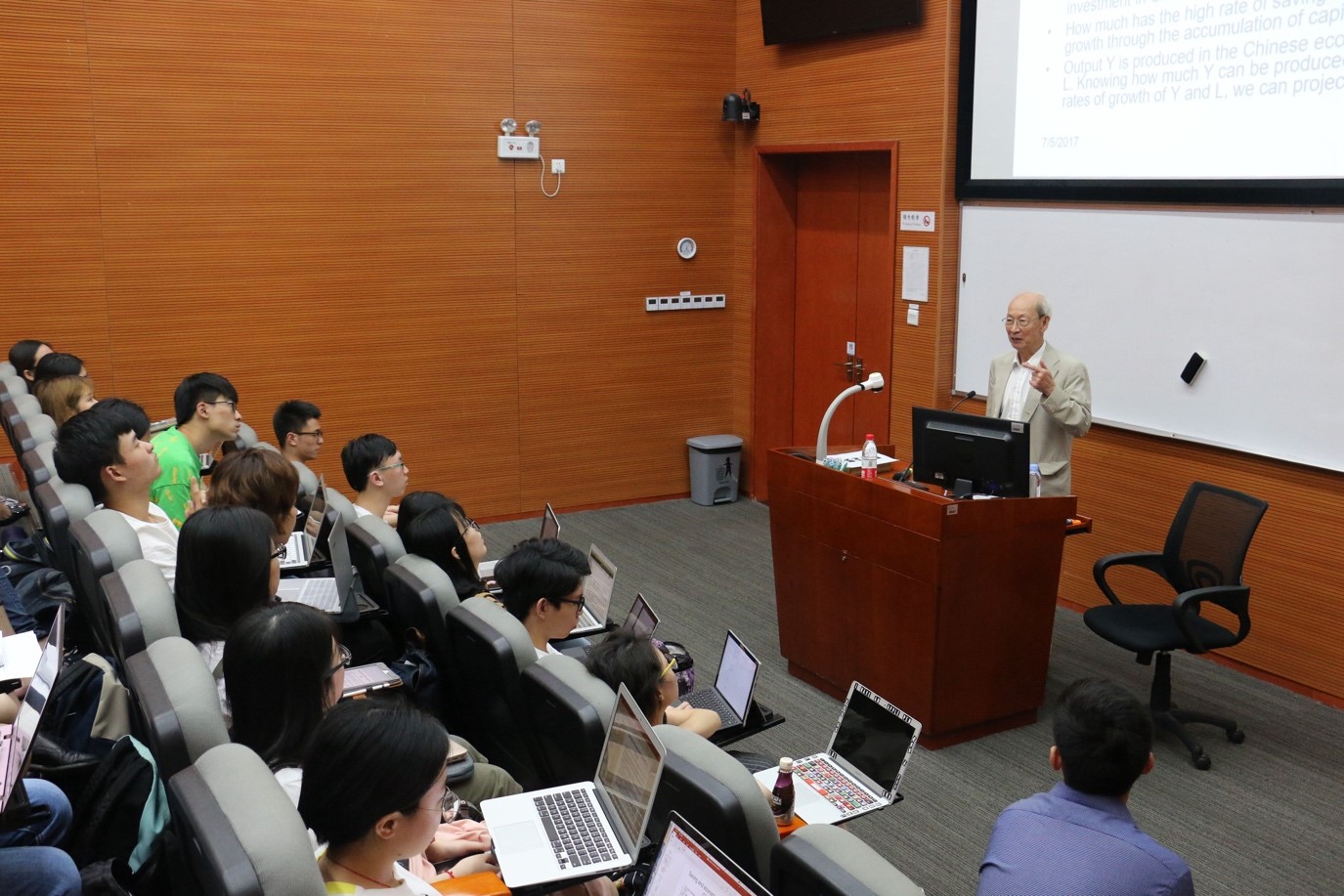
Course Review
This course is based on one of Prof. Chow’s economics courses, which is inspired by his book - "China Economic Transformation", at Princeton University.
First of all, Professor Chow introduced the basic situation of China's economic growth after the reform and opening up: from 1978 to 1998, the growth rate of China's real GDP has reached 9.3%, and a crucial reason to this high rate is the high savings rate (saving rate), which accumulate capitals rapidly. Meanwhile, capital (K), one of the key factors in economic growth, affects output (Y) directly as well as labor (L) and total factor productivity.
The relationship within these four factors is shown in the Cobb-Douglas production Function. Professor Chow put China’s data into the model, and showed how to use the data processing method of econometrics to draw the relationship between variables. Through illustration, he revealed the mystery of data processing and economics.
In this class, Professor Chow portrayed an economic growth "panorama" for all students, which makes "China's rapid economic development" no longer an abstract concept, and answered some basic questions including “What is the concrete data of China’s development”, “Where does the data come from” and “What is the driving force”.
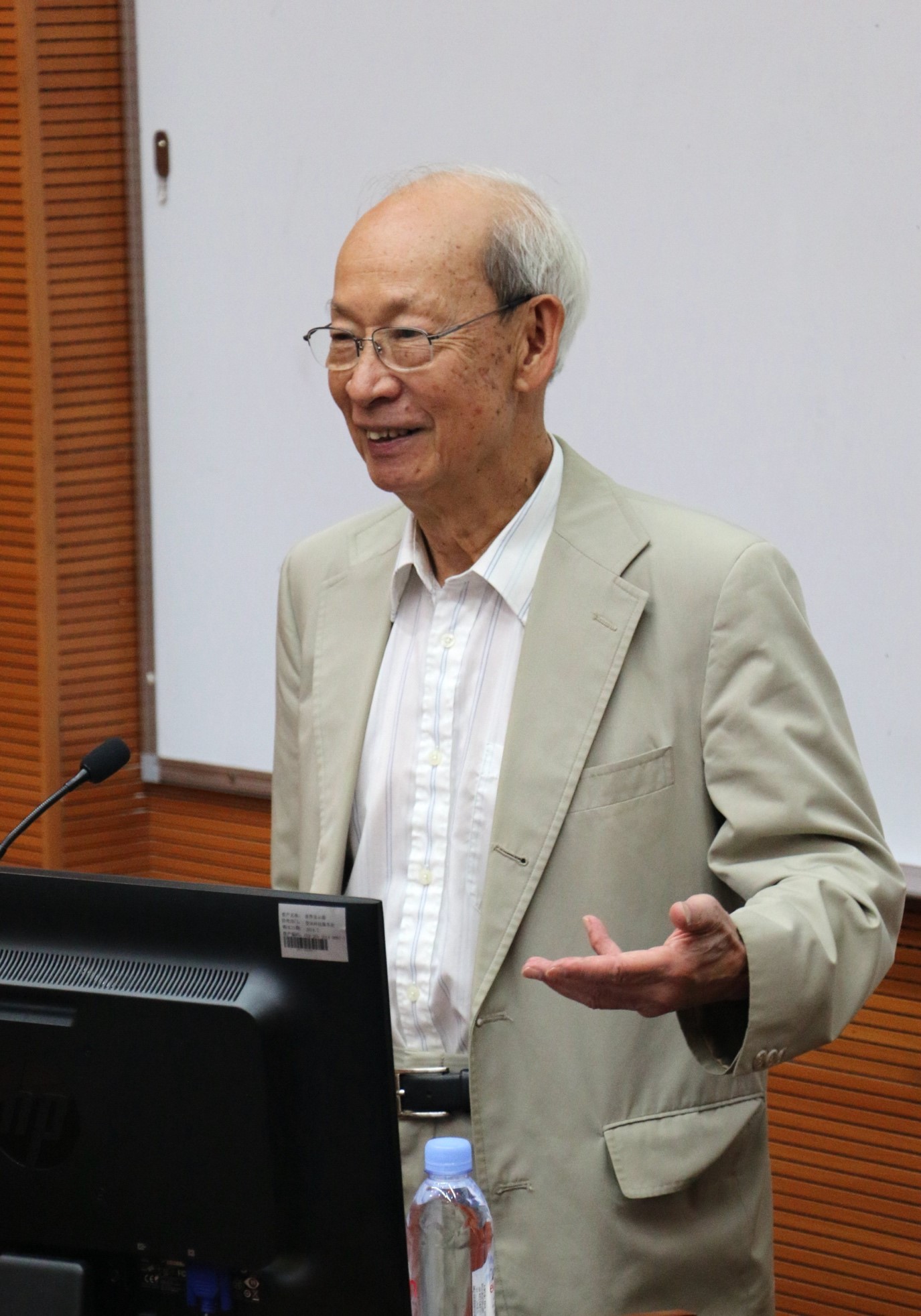
Professor Chow “walks out from the textbook”
When talk about Professor Gregory C. Chow, students are quite familiar because the famous “Chow test” is regularly seen in the textbook of econometrics. When learning that Professor Chow will come to the campus to teach us, we are quite happy and eager to meet the inventor of “Chow test”.
The class is not very strict as we imagined, but relax instead, it gave us a chance to know more about this professor who we thought we could only see in our textbook.
In addition to knowledge points, Professor Chow also told stories behind these points. For example, when introducing “beta” in the production function, he told us about the research experience of his friend, Robert Solow, the inventor of economic model of Solo, and Gregory Mankiw, a well-known economist. At the end, Professor Xie Cong sent a notebook as a gift to him on behalf of the school. He was so happy because this was his wife’s favorite, even though he used iPhone, but she couldn’t get used to it, so she wrote down everything on notebooks.
After this class, a great master became a friend of ours.
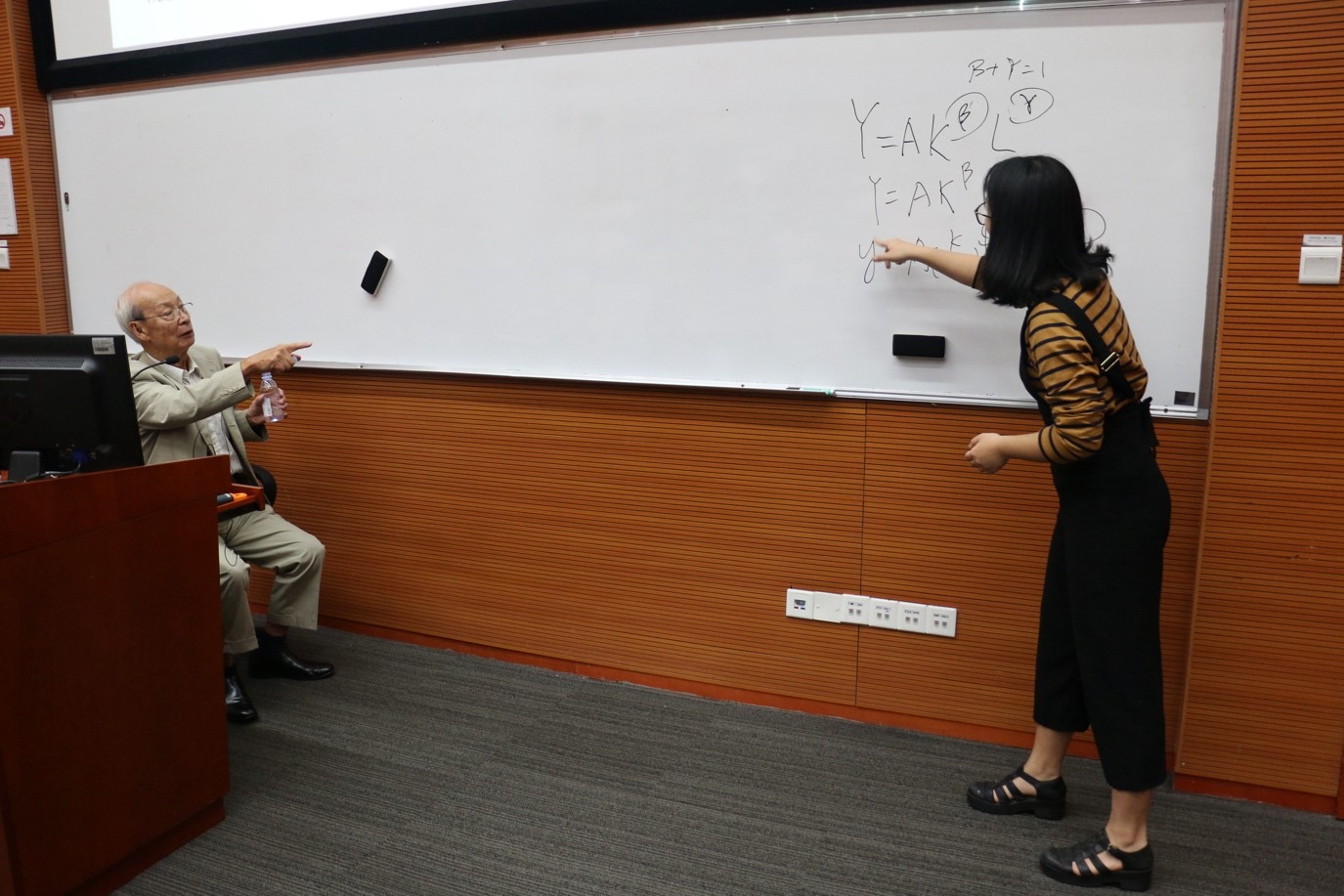
The real scholar
The class was relax but yet rigorous, we saw what a real scholar is like in Prof. Chow from two aspects.
In the class, some students raised questions on the regression results of the Cobb-Douglas production function, so Professor Chow answered these questions very patiently, indicating that it was only the best presumption he could think of so far. And asked the students what they would do if the result was only a presumption. He did not deny, but encouraged students to find a better way by thinking critically.
While introducing the contribution of capital to economic growth, Professor Chow briefed us on his website (http://www.princeton.edu/~gchow/, you can find many Professor Chow's books and papers if you are interested).
While finding the right article he wanted to recommend to us about researches on Taiwan Economy, he introduced the stories of many other papers that came into his sight as if he was enumerating the heirlooms of his own family. Watched him saying “data is fact”, we could feel how treasured these researches were to him.
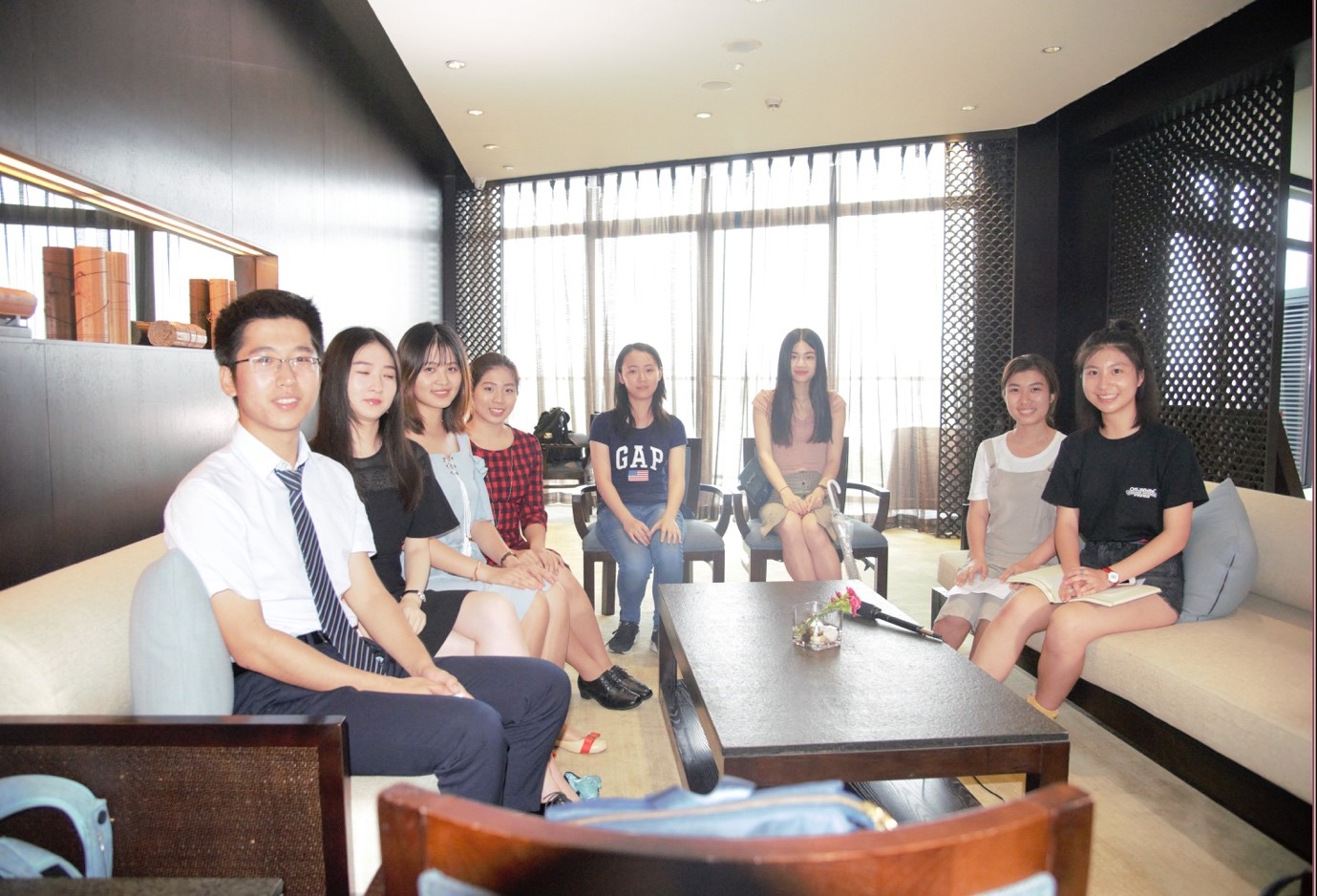
Face to face with the economists
Professor Chow also had face-to-face conversation with some students. They did not only talk about economic issues but Professor Chow also shared many life experience and stories of his life. Through this sharing, students had a chance to see and respect how a great economist thinks and understands life.
The first time we met Professor Chow was in his intermediate macroeconomic class before the interview. As a teacher, he was very professional, we respected and admired him. This second time, our feeling was indeed different. Clean hair, neat suit, friendly smile, and warm handshake, which made us feel like we were talking to a friendly old man next door, however, the way he talked was so much of a gentle academician.
Communicating with a well-known economist is not an easy thing to do, but there are knowledge and insights that cannot be learned in daily life. As a researcher, he thinks fine, rigorous, data and analysis are of great significance. In the conversation, he mentioned the rigor of the academic many times, even the dialogues were to lead us think independently. When a student asked about the impact of Belt and Road Initiative on the value of RMB, he did not answer directly, instead, he guided the students to think about the law of economics behind each phenomenon, and through this way, he encouraged students to put forward their own views. "When facing certain economic problems, you need to build an economic model to explain some short-term phenomenon," Professor Chow said.
Professor Chow not only discussed with the students about academic problems, but also shared the stories of old time. This conversation has totally changed the stereotype of thinking "economists are all serious and stubborn". Through listening to Professor Chow’s stories and laughing, students could all feel the accumulation of knowledge from him on history and culture.
As the precursor of China’s modern economics education, Professor Chow's greatest contribution is not only his own research works, but more importantly, introducing modern Western economic theory into China after reform and opening up, and cultivate numerous talents. The story of the Ford class opened by Professor Chow has always been praised in China’s economy and education sector. "It was in the eighties of last century. In 1983, two officials from the Ministry of Education of China came to my house in Princeton and asked me to provide help to China's economic development. Therefore, I invited some well-known American economists to work with me on the economics courses in China to cultivate talents needed for China's economic construction. "Professor Chow recalled. With the help of Professor Chow and other economists, the Ford class successfully educated over 700 students, many of them have now received remarkable achievements.
Economics is a science that studies socioeconomic phenomenon and economic laws through hypothesis and confirmation. As Professor Chow said, "In the study of the economy, you need to think rigorously and analyze with accurate model ", of course, no matter which field, certain professional knowledge background is key to specialize in it. You would have to be more specific than others. Otherwise, it is just empty talk.
As one of the elder generation of famous scholars, Professor Chow has his own attitudes and views towards academics and life. At the end of his interview, he encouraged students that they should never stop learning. "The law of reading is read more and think deep". If students can understand these two points, they will meet Professor Chow expectations further.

